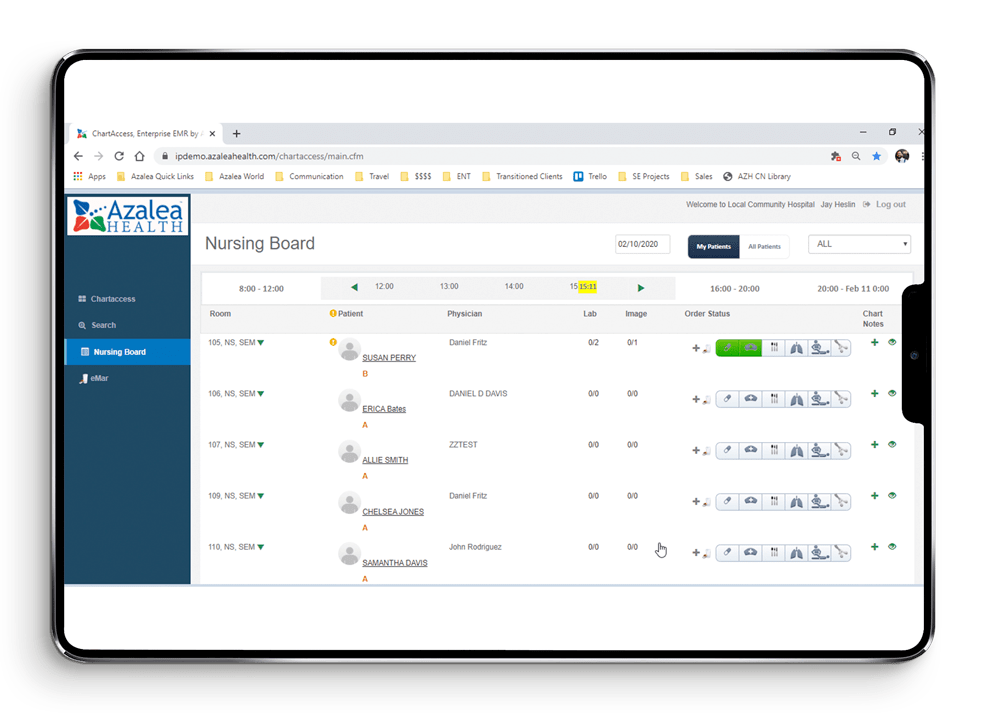
St. Anthony’s Psychiatric Hospital Case Study
Simple design and configurability lead
to a streamlined experience
About St. Anthony’s Psychiatric Hospitals
St. Anthony’s health system operates two behavioral health hospitals in Wichita and Olathe, Kansas. St. Anthony’s is operated by Axiom Healthcare Services and works closely with the 12 other Axiom facilities for seniors in Kansas and Colorado.
Like a lot of behavioral health providers, they were still using paper records. But it slowed down their staff and forced them to spend hours filling in their patients’ charts. When the health system started looking for an EHR, it initially went with one from vendor ADSC. But the EHR was designed for a clinic setting, rather than an inpatient hospital setting. They wanted a solution that was customizable to their workflows and integrated with telehealth.
Removing The Administrative Burden
The Azalea team has been really hands-on from the start to make the EHR work for our needs. The training and implementation has gone smoothly so far, and our staff is looking forward to having the system fully up and running.”
– DeShaun Linson, RN of St. Anthony

Their Journey From Paper to Cloud
For its EHR, St. Anthony’s staff were drawn to vendor Azalea Health because it did not shy away from working with smaller, more specialized hospitals. Azalea’s cloud-based EHR platform enabled St. Anthony’s to implement the software remotely. This was important because the health system wanted to limit any potential COVID-19 exposure to its elderly and high-risk patients. The cloud-based system also was valuable, because it meant that St. Anthony’s did not need to dedicate any of its limited IT resources to manage the system on its premises.
St. Anthony’s hospitals started implementing the EHR at the end of last year and will have the system fully operational by August 1, 2021. “This new EHR will remove a lot of the administrative burden on our staff and allow our team to spend more time with patients. That matters a lot at psychiatric hospitals for seniors. Most of our patients have trouble with their memory or cognition, so that human connection is really important to their care.”
